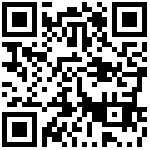导航 / Navigation
- 中文介绍在下面
A Decentralized Social Platform Based on Trust Networks
The concept of a friend of a friend is also a friend. Trust can be transferred. The trust relationships between people form a complex network. With the help of centralized social platforms, we can establish trust with strangers far away. In a decentralized network, the rules of the game favor the capable. The big central authority cannot dominate others unless they are truly exceptional. This creates a more fair world.
Actions individuals can take on this network include:
- Providing or requesting social services from others. In a decentralized network, everyone can run their own server.
- Requesting authentication from others. For instance, if I provide you with an hour of service, I may need you to publicly announce this to increase my social value (which can act as currency).
- When posting, one can choose whether their post is visible to specific people or all. They can also specify who can repost their content.
- Endorsing specific individuals: completely trusting someone’s posts, vouching for their credibility, or declaring them untrustworthy.
- Subscribing to someone’s posts or filtering out posts with low composite trust ratings in your social circle.
- Declaring your level of trust in specific posts or individuals.
- Storing posts and requesting others to store posts for you.
- Conducting transactions, which involve a complex process due to the non-homogeneous nature of currencies in this network.
With blockchain technology ensuring security, these operations are resistant to tampering or impersonation, except through social engineering. This setup addresses the challenges faced by decentralized social platforms, such as scam and ad inundation. Scammers and advertisers will struggle to gain trust, rendering their posts unnoticed. People can expand their trust networks through friends and friends of friends.
The envisioned outcome of this model is the emergence of various central figures leading their respective groups in trading and competing within this free market.
If there are no major flaws in this proposal, it could be a world-changing design. Perhaps I should write to the Damus project team with this suggestion;
Translate the above text into English.
《基于信任网络的去中心化社交平台》
所谓朋友的朋友也是朋友。信任是可以传递的。人与人之间的信任关系是一张复杂的网络。
在中心化社交平台的帮助下,我们可以和远在天边的陌生人建立信任关系。在去中心化网络里,游戏规则是能者上位。大中心无法对其他人形成压倒性的掌控,除非你牛逼坏了。这是一个更为公平的世界。
每个人可以在这个网络里做出的行为:
- 向他人(索要/提供)社交服务。去中心化网络,每个人都可以开服务器。
- 向他人索要认证。例如,我为你提供了一个小时服务,需要你向所有人公布此条信息,以增加我的社会价值(可以用作货币)。
- 发布帖子时,可设置自己的帖子是部分人可见或全部可见。设置自己的帖子可以被哪些人转载给哪些人或是任意转载。
- 可对指定人发言发言:完全信任某人的(所有\特定)帖子,以自己的名誉保证某人的可信度。很相信某人的(所有\特定)帖子,但不为(此人\此贴)承担失信责任。宣发(某人\某贴)不可信。
- 订阅某人的帖子。订阅某人订阅的全部(帖子\人)。订阅某人认为可信度高于80%的帖子。过滤那些我的朋友圈综合信任度低于40%的帖子(比如你完全信任A,50%信任B。那么帖子C的朋友圈综合信任度是A和B对C的信任度的加权平均)。
- 对(特定\所有)人声明你对某(帖子\人)的信任度。
- 存储帖子。请求某人帮你存储帖子。
- 转账。转账是一个复杂的过程。因为货币是人对人的认证,是非同质化货币。当然,你可以这样发布声明:xx时间段,A为我提供了价值5 USD的服务。举个例子,A为B提供了基础的通信服务,获得了B价值100元的认证。C和A做了交易,A认证C为A提供了价值200元的服务。B和C是熟人,那么他们可以用现金进行交易,B花一些钱从C手里买来A服务B的认证。最终会形成多种货币,和现实的货币一样。但每个人都能轻松发行自己的货币,至于货币的价值和汇率,就需要每个人自己判断了。如果国家加入这个网络,那么现实生活的法币就能和这个去中心化社交平台的货币挂钩。这个网络起到的作用是去掉了很多抽成的中间商。每个人都可以自由地对风险和收益进行权衡。
- 帖子可以是任何东西。甚至可以是一个去中心化APP。
在区块链的技术保障下,可以确保以上操作难以被人恶篡改或冒名顶替,除了社会工程学。这同时解决了去中心化社交平台的老大难问题:诈骗信息和广告信息铺天盖地的问题。那些骗子和广告商将难以获取他人的信任,没人看他的帖子。而人们可以通过朋友,朋友的朋友,逐渐扩大的自己信任网络。
我认为这个方案演化的结果是,形成各种各样的中心人物,他们将带领自己庇护的一群人在这个自由市场交易和斗争。
如果我的方案没有大问题,这会是一个改变世界的设计。我想我应该写信给Damus项目组的人提建议,说不定这是我名留千古的机会(滑稽)。
最后编辑:admin 更新时间:2024-03-03 13:47
